
Movie/TV
16:10, 13-Apr-2019
Indian Oscar icon's six-decade-old trilogy hits big screens in China again
By Suvam Pal
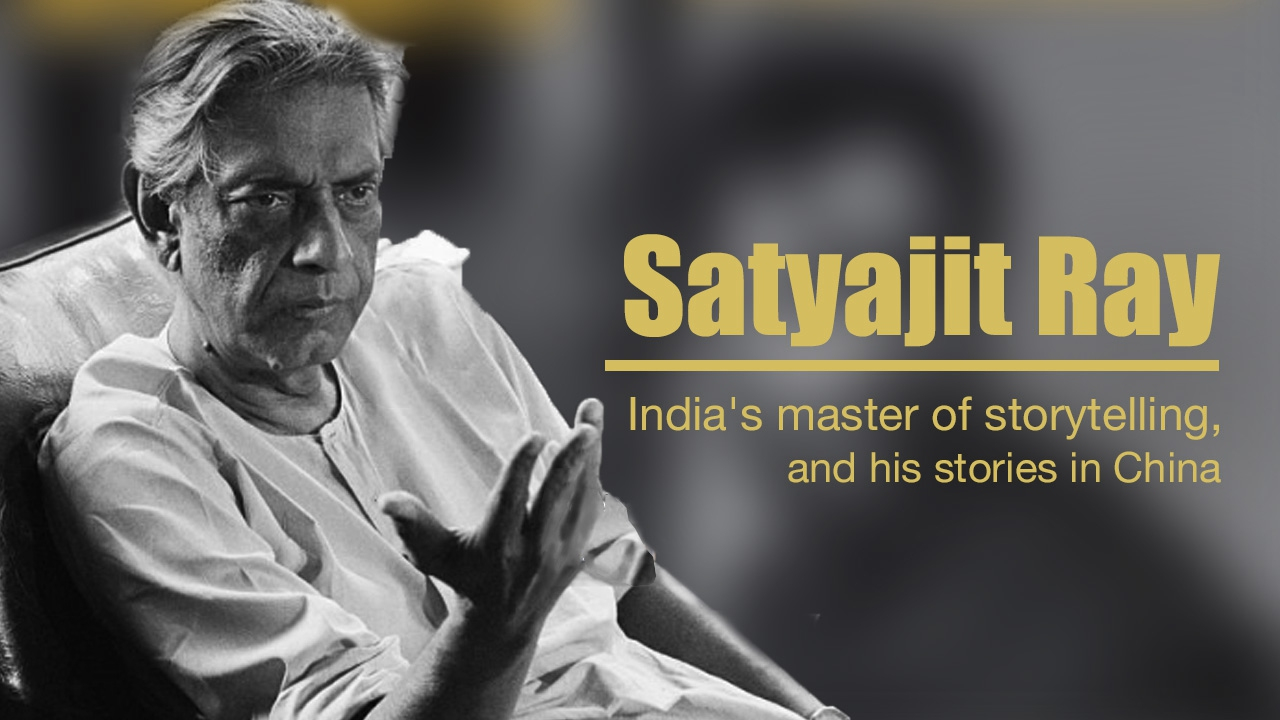
Six-decades after world-renowned Indian filmmaker Satyajit Ray's iconic Apu trilogy made an indelible mark in world of cinema, the complete ensemble of his three path-breaking films – "Pather Panchali" ("Song of the Road"), "Aparajito" ("The Unvanquished") and "Apur Sansar" ("The world of Apu") – hit the big screens again in China at the ninth Beijing International Film Festival (BJIFF).
Ray's masterpieces, crafted in his native Bengali language, have never been shown before on the Chinese soil and is set to enthrall film-lovers at the much-anticipated annual event, running from April 13 to April 20, in the Chinese capital.
"It's news to me! I had no idea about the Apu trilogy being shown at the film festival in Beijing since we don't hold the rights for these films. But I am happy that the film-lovers in China are finally getting a chance to watch my father's films," Sandip Ray, Ray's son, who is also a noted filmmaker, told CGTN from his home in the eastern Indian city of Kolkata.
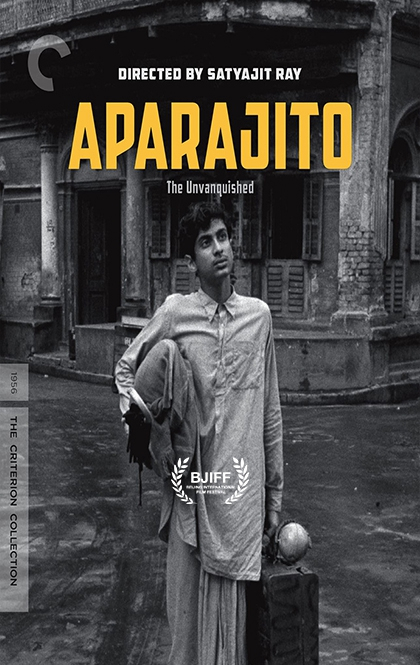
A poster for "Aparajito" directed by Satyajit Ray /Photo via BJIFF
A poster for "Aparajito" directed by Satyajit Ray /Photo via BJIFF
Ray's trilogy redefines Indian cinema in China
Even before the festival got underway, the trilogy has already generated a massive interest among the cinema aficionados in the Chinese capital as each of the three shows for the 1955-released "Pather Panchali" – the first movie of the series – are already sold out. No ticket for Ray's debut film is available on popular Chinese online ticketing app, Tao Piao Piao.
"I have seen his entire Apu trilogy and have already used them in my Bengali language classes for my students. Even though they were made more than half a century ago, the style was very realistic and demonstrated the vivid reality of the Bengali society," said Yu Qiuyang, who teaches Bengali language & literature at the center of South Asian Culture Studies of the School of International Studies in Beijing-based Communication University of China.
"In my opinion, the Chinese audience doesn't quite get the concept of Indian movies. They only know Bollywood but are not aware of the other enriched genres like Bengali movies and other Indian regional movies or parallel cinema of India. For that reason, I believe watching Ray's movies can make them aware of such artistic and delicate genre of Indian movies," Yu added.
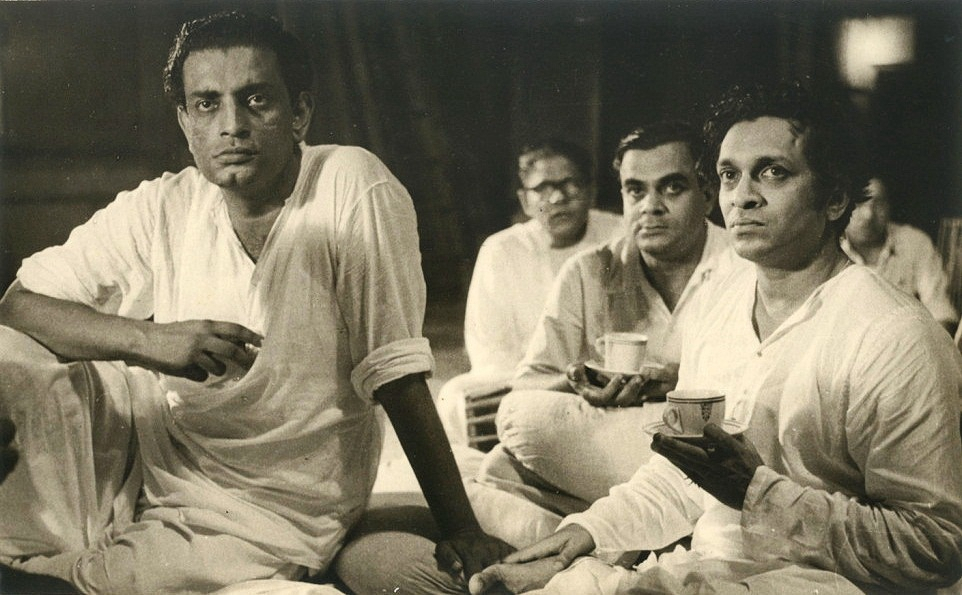
Satyajit Ray with Ravi Sankar music recording for "Pather Panchali" (1955) /Courtesy: Sandip Ray
Satyajit Ray with Ravi Sankar music recording for "Pather Panchali" (1955) /Courtesy: Sandip Ray
Ray, who was born in a family of literary icons in Kolkata in 1921, wore many hats from being a filmmaker, screenplay writer, singer, music composer to writer of a popular detective series for children and science fiction stories, apart from being an artist par extraordinaire and an ace designer.
Although he was a globe-trotter and was quite popular in Japan and many other Asian and European countries and regions, the multi-faceted genius never visited the Chinese mainland.
"He had been to Hong Kong once while going to Manila for a film festival but he liked the place and its culture a lot. In fact, the Chinese SAR has been featured in one of my father's detective adventure stories," Ray's son Sandip said.
What is Apu trilogy?
The Apu trilogy includes three of Ray's earliest movies in the 1950s and was based on two Bengali novels – "Pather Panchali" (1929) and "Aparajito" (1932) – written by Bibhutibhushan Bandopadhyay. Ray, who was originally an illustrator of a children's version of the novel Pather Panchali, made it into his debut movie with a shoestring budget in 1955.
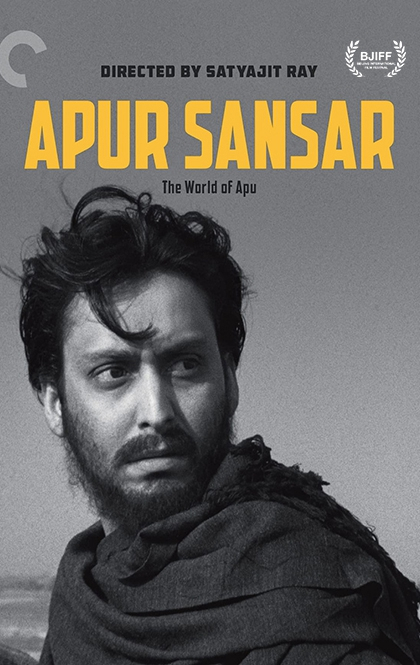
A poster for "Pather Panchali" directed by Satyajit Ray /Photo via BJIFF
A poster for "Pather Panchali" directed by Satyajit Ray /Photo via BJIFF
His next release was "Aparajito" in 1956, and the third movie of the series "Apur Sansar" was released in 1959. The main protagonist of the series is Apu, a free-spirited child in rural Bengal, who matures into an adolescent urban student and finally a sensitive man of the world. The music for these movies was composed by legendary sitar exponent Pandit Ravi Shankar.
Ranked among the top 100 films of all-time in world cinema, the trilogy, often regarded as a landmark in Indian parallel cinema, won many international awards at a slew of famous film festivals like the Cannes, Berlin and Venice, to name a few.
Incidentally, the original negatives of all three films were burned in a film-lab fire in London in 1993 but later it was restored and re-released by America-based Janus Films in a pristine 4K restoration in 2015.
What Ray & his trilogy mean to world cinema?
Ray was presented the Honorary Academy Award or the Oscar a few months before breathing his last in 1992 with the citation, "In recognition of his rare mastery of the art of motion pictures, and of his profound humanitarian outlook, which has had an indelible influence on filmmakers and audiences throughout the world."
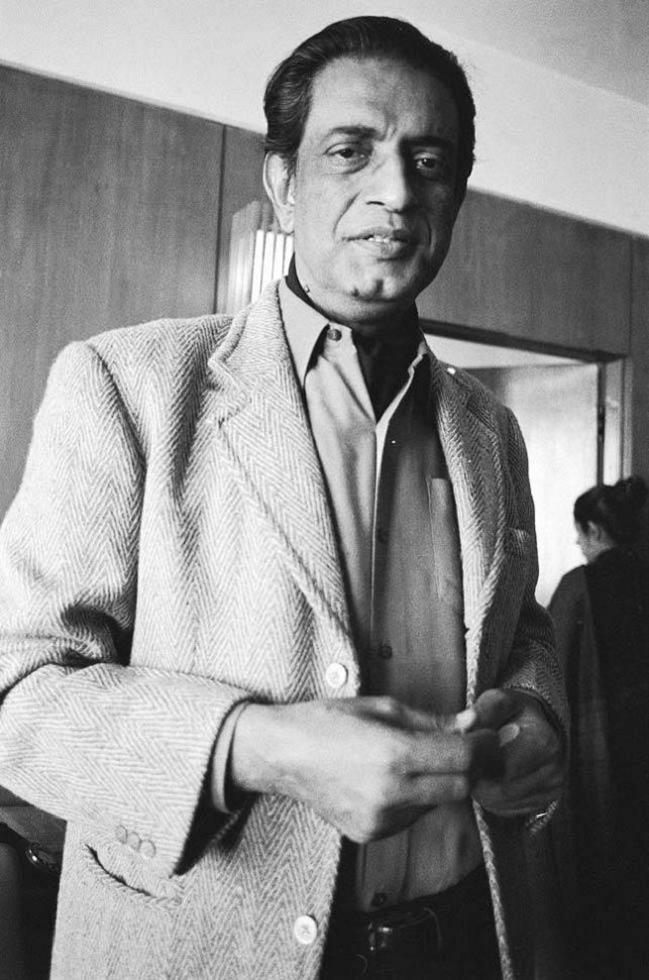
Satyajit Ray in New York in 1981 /Courtesy: Sandip Ray
Satyajit Ray in New York in 1981 /Courtesy: Sandip Ray
"I can never forget the excitement in my mind after seeing it. It is the kind of cinema that flows with the serenity and nobility of a big river," iconic Japanese filmmaker Akira Kurosawa recalled of "Pather Panchali" during an event in Moscow in 1975.
Interestingly, while receiving the Best Director's Award of the International Film Festival of India or the IFFI in 2017 for her path-breaking film, "Jia Nian Hua" ("Angels Wear White" in English), Chinese filmmaker Vivian Qu acknowledged, "I first saw Satyajit Ray's magnum opus 'Pather Panchali' (Song of the Road) and his famous Apu trilogy at a New York theater and the experience was simply priceless.”
(Cover image designed by Jia Jieqiong)

SITEMAP
Copyright © 2018 CGTN. Beijing ICP prepared NO.16065310-3
Copyright © 2018 CGTN. Beijing ICP prepared NO.16065310-3